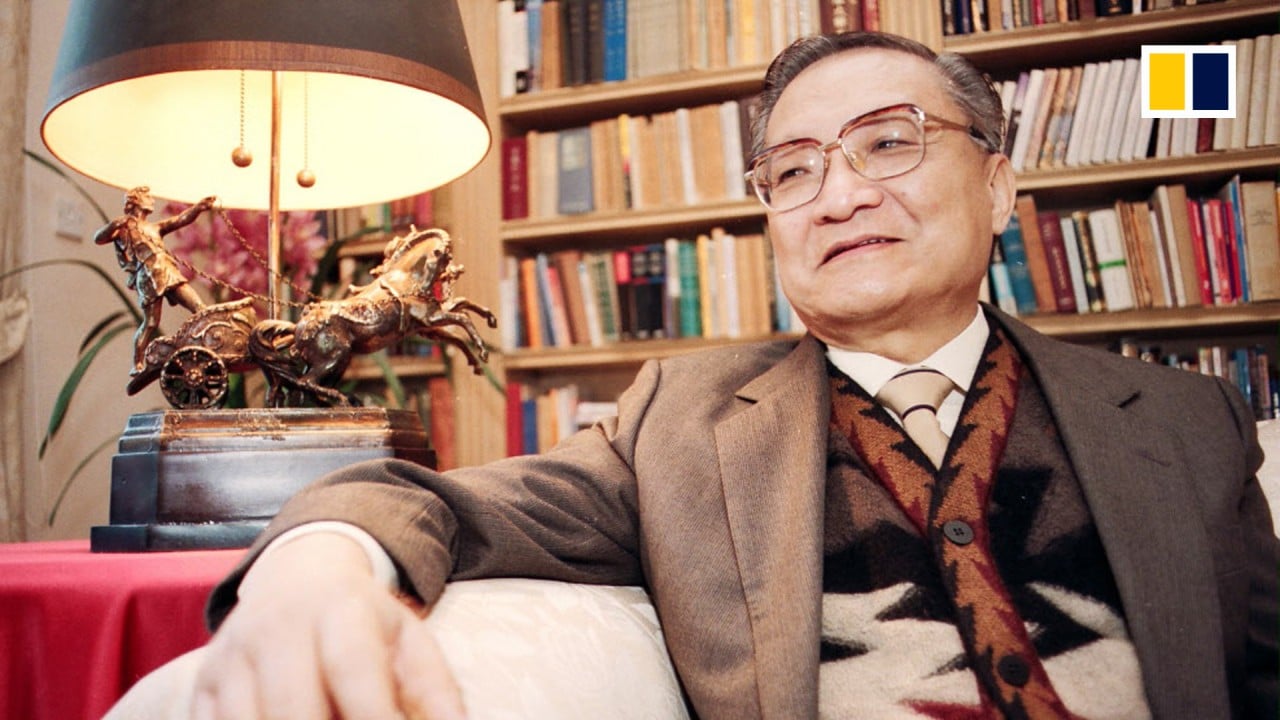
Hong Kong wuxia novelist Louis Cha ‘Jin Yong’ gets posthumous victory in copyright lawsuit against mainland fan fiction writer
- The Guangzhou Intellectual Property Court ruled that mainland Chinese writer Yang Zhi’s 2002 novel There They Were constituted copyright infringement
- Yang and his publishers were ordered to pay 1.88 million yuan to the estate of wuxia novelist Louis Cha Leung-yung, known by his pen name Jin Yong
The final judgment of the Guangzhou Intellectual Property Court ruled that Yang’s 2002 novel There They Were, known as Ci Jian De Shao Nian in Chinese, constituted copyright infringement and unfair competition, according to a statement by the court on Friday.
The court, in the capital of southern Guangdong province, ordered Yang and his publishers to pay 1.88 million yuan (US$270,000) to Cha’s estate. This judgment for the plaintiff includes 1.68 million yuan as compensation for economic loss and 200,000 yuan for legal expenses, with Yang’s publishers covering 330,000 yuan of the total sum.
The copyright holders of four of Cha’s novels – The Legend of the Condor Heroes, Demi-Gods and Semi-Devils, The Return of the Condor Heroes and The Smiling, Proud Wanderer – will also receive 30 per cent of the royalties should Yang’s disputed novel get republished.
The judgment handed down by the court in this high-profile case raises the stakes for writers and publishers of Chinese fan fiction, which uses characters and scenarios from popular, copyrighted works without the original authors’ consent.
There They Were, written under Yang’s pen name Jiang Nan, initially ran as a series on an online forum called Qingyun Shuyuan. The novel delves into the lives of a group of young university students, who bear the names of Cha’s well-known protagonists – including Guo Jing and Huang Rong – from The Legend of the Condor Heroes.
The success of Yang’s initial work of fan fiction led him to create other fantasy series, including Dragon Raja and Eagle Flag. He received further acclaim as mainland China’s richest author in 2015, when he received 32 million yuan in royalties.
A year later, Cha slapped Yang and his publishers with a lawsuit for copyright infringement and unfair competition. Cha sought 5 million yuan in compensation and demanded There They Were be removed from the market.
4 of Louis Cha ‘Jin Yong’s’ most iconic TV and film characters
In 2018, the People’s Court of Guangzhou’s Tianhe District ruled that Yang pay 1.88 million yuan as compensation and to cover legal expenses, and issue a public apology to Cha. The court also ordered Yang and his publishers to stop printing There They Were and destroy all inventory.
In its judgment, the Guangzhou Intellectual Property Court did not bar Yang’s disputed work from being republished. Despite the similarities in the names and personalities from Cha’s novel, Yang’s storyline and genre are different, according to the court.
“In order to meet the diverse needs of readers, balance the interests of all parties and promote the development and prosperity of cultural industries, [we] will not rule to stop the infringement under the premise that sufficient and effective economic compensation and other alternative measures have been in place,” the court said.


